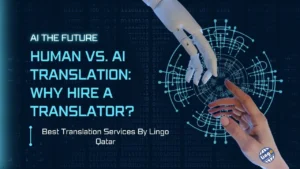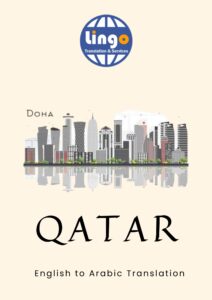Resources for Medical Interpreters & Translators: Skill-Building and Medical Terminology
In the ever-expanding global healthcare environment, the demand for skilled medical interpreters and translators has surged significantly over the past decade. There has been a strong realization of the indispensable role these professionals play in facilitating communication between healthcare practitioners and patients who speak different languages, thereby bridging linguistic and cultural barriers. Most notably, the field of medical translation and interpreting requires specific expertise, not just bilingual language skills but also a deep understanding of specialized medical terminology.
This article serves as a guide, presenting some crucial resources for medical interpreters and translators, focused on skill-building and acquiring the necessary medical terminology.
Critical Skills for Medical Interpreters and Translators
Proficiency in source and target languages is, of course, the essential skill required for a medical translator or interpreter. However, more than simply being bilingual is required. The medical field is filled with unique terms, jargon, abbreviations, and terminologies that one must be conversant with to facilitate accurate and precise communication.
The medical interpreter must possess excellent interpersonal, cognitive, and critical thinking skills, enabling them to accurately and quickly interpret spoken communication. On the other hand, medical translators need strong research, analytical, and writing abilities to translate written texts effectively.
Both roles require a solid understanding of medical terminology and ethics, cultural competency, and the ability to handle stressful and sensitive situations with empathy and professionalism.
Resources for Skill-building
1. Training Programs:
Numerous colleges and institutions offer formal training programs for medical interpreters and translators. These programs cover the basics of medical interpreting, code of ethics, standards of practice, and medical terminology. For example, programs offered by the Southern California School of Interpretation, Boston University’s Interpreter Program, or the Medical Interpreter Certification in the United States are highly recognized.
2. Certification:
Certification provides validation of your skills and knowledge, and it may be a requirement for some roles. Several recognized bodies offer certification programs for medical interpreters, such as the Certification Commission for Healthcare Interpreters (CCHI) and the National Board of Certification for Medical Interpreters in the US. The American Translators Association (ATA) also offers certification for medical translators.
3. Workshops and Seminars:
By attending workshops and seminars, you can gain hands-on experience, build networks, and stay up to date with the latest trends and changes in the medical and interpretation fields. Associations like the International Medical Interpreters Association (IMIA) and the National Council on Interpreting in Health Care (NCIHC) regularly conduct such workshops.
4. Online Websites and Apps:
Some of the useful websites for medical interpreters and translators are ProZ, TranslatorCafe, Translators without Borders, and Gllossarissimo! These websites provide platforms to collaborate, discuss and learn from veteran medical interpreters and translators. Several online apps like iTerms and Canopy Speak can come in handy for interpreting and learning medical terminology.
Resources for Learning Medical Terminology
Medical terminology forms the unique language of healthcare practitioners. As such, interpreters and translators need to speak this language fluently.
1. Books and e-Books:
Several texts specifically address medical terminology for interpreters and translators. ‘An Introduction to Medical Terminology for Health Care’ by Andrew Hutton, ‘Spanish-English English-Spanish Medical Dictionary’ by Onyria Herrera McElroy and Lola Grabb, and ‘Encyclopedia of Medical Terms‘ by The Health Sciences Academy are top recommendations.
2. Online Courses:
Online platforms like Coursera, Udemy, and Khan Academy offer courses on medical terminology that can help beginners and intermediate learners. These self-paced courses cover a wide range of terms related to different body systems, diseases, and medical procedures.
3. Medical Dictionaries and Glossaries:
Dictionaries like Dorland’s Illustrated Medical Dictionary, Stedman’s Medical Dictionary, or ‘Taber’s Cyclopedic Medical Dictionary’ include definitions and descriptions of complex medical terms. Glossaries provided by WHO, NIH, or the Centers for Disease Control and Prevention can also be hugely beneficial.
4. Webinars:
The ATA and ProZ organize webinars focused on enhancing the knowledge of medical terms among translators and interpreters.
5. Medical Journals:
Reading articles from medical journals like The New England Journal of Medicine, The Lancet, or Nature Medicine can help you get acquainted with medical terminologies in context, which enhances understanding and retention.
6. Health-Related Websites:
Websites of various health institutions like Mayo Clinic, WebMD, Medscape, or the American Medical Association publish articles, case studies, videos, and blogs that can be a rich resource for learning medical terms.
A career in medical translation or medical interpretation is not just linguistically demanding but also intellectually challenging. Enriching your skill sets and continuing to learn and evolve in this field requires dedication, continuous learning, and regular practice. The resources mentioned above can go a long way in assisting medical interpreters and translators in their professional journey, helping them provide invaluable services to patients and healthcare providers alike.





